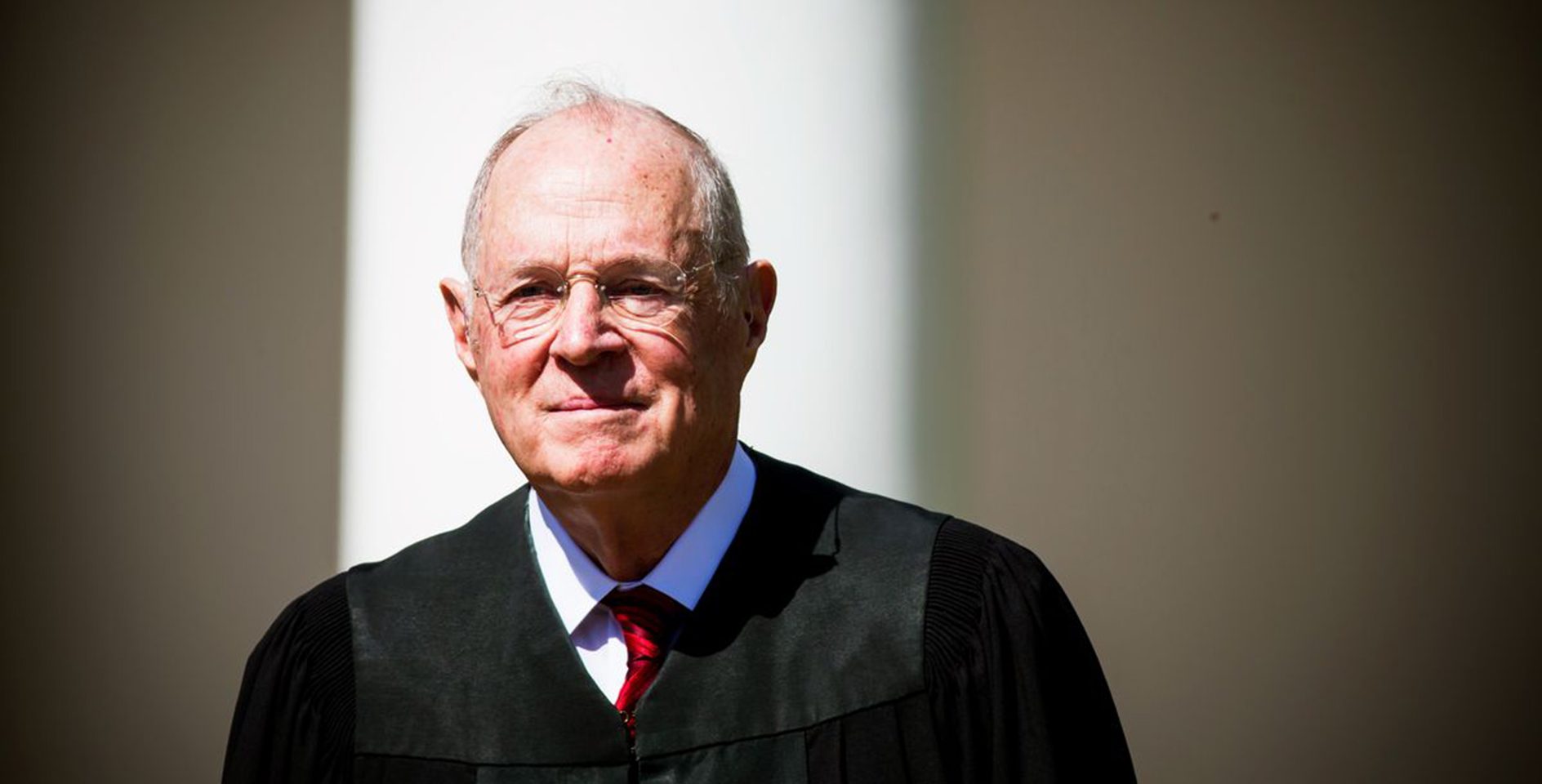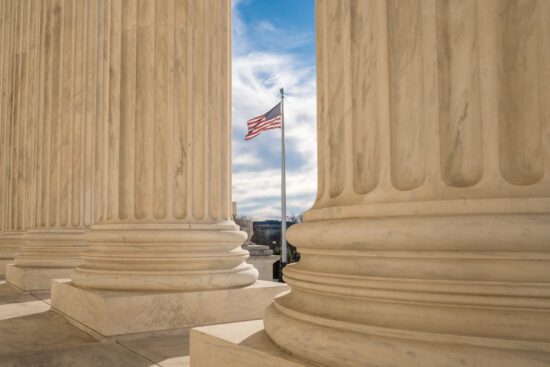On Wednesday, Supreme Court Justice Anthony Kennedy announced his intention to retire from the nation’s highest court effective July 31.
Upon hearing the news of his retirement, there was no small amount of jubilation from evangelical Christians and those who would call themselves social conservatives. For a generation, issues near and dear to Christians have depended upon his sole vote.
As a non-lawyer, I am not well-equipped to comment on the merits of his jurisprudence. As someone who spends his time at the intersection of ethics and public policy, I am able to comment on the moral chaos and human collateral his decisions have wrought.
From reaffirming America’s commitment to abortion or redefining marriage, Justice Anthony Kennedy shares responsibility for cheapening the moral character and quality of America. His tenure accelerated, furthered, and deepened the gulfs that divide one American from another.
Our public morality as a nation is worse off as a result of his opinions. Not all of America’s woes can be laid at his feet, to be clear, but his attendant legal opinions have produced scars that America will forever bear.
To be fair on one hand, Justice Kennedy’s opinions at times reaffirmed the constitutional priority of religious liberty. His opinions in such cases as Masterpiece Cakeshop v. Colorado Civil Rights Commision, Burwell v. Hobby Lobby Stores, and Town of Greece v. Galloway are all welcomed for their deference in siding with religious actors over and against the claims of government.
On the other hand, Justice Kennedy’s opinions helped cement the totems of the Sexual Revolution, namely abortion and homosexuality—totems that have produced the current spate of conflicts between religious liberty and sexual liberty.
From his opinion in Planned Parenthood of Southeastern Pennsylvania v. Casey to reaffirm Roe’s abortion regime, to authoring the textually warrantless Obergefell v. Hodges decision that legally redefined marriage, Justice Kennedy must be seen as no less than the legal architect of the Sexual Revolution.
What to make of Justice Anthony Kennedy’s legacy?
Justice Anthony Kennedy is akin to a secular saint, were the forces of secularism to ever venerate such an individual.
His jurisprudence matches the spirit of the age. In his now-infamously criticized “mystery of life” passage, Justice Kennedy acted as barometer to the pervasive cult-of-self. In Casey and reaffirmed in Texas v. Lawrence, Kennedy defined liberty as “the right to define one's own concept of existence, of meaning, of the universe, and of the mystery of human life.”
In this one passage that legal scholars, theologians, and ethicists all cite as a revealing insight into both Kennedy’s mind and the cultural mood itself, Justice Kennedy reduced liberty down to self-instinct and self-autonomy.
Notice preeminently that liberty is no longer tethered to truth. In this libertarian scheme, external constraint is cast off for the higher good of self-actualization. Gone are limits. No more is there duty to God, neighbor, or family—but to the enchanted self. In this ethic, maximizing human choice—be it religious, sexual, or whatever ethic du jour—is the highest good. This ethic is manifested today in obsessions with self-fulfillment or in empty phrases like “live your truth.”
New York Times columnist David Brooks captured the sentiment behind Kennedy’s passage well, writing:
There is no acknowledgment of the parts of ourselves that we don’t choose but inherit — family, race, social roles, historical legacies of oppression, our bodies, the habits that are handed down to us by our common culture.
There’s no we. We are all monads who walk around with our own individual opinions about existence, meaning and the universe. Each person is a self-created choosing individual, pursuing individual desires. There is no sense that we are part of a common flow connecting the past, present and future; instead, each of us creates our own worldview anew.
No longer a “we,” but the primacy of the “I.”
Whether abortion or the drive to redefine marriage, the common denominator is the self over and against the so-called “constraints” of religion, moral duty, or moral tradition. What matters in this jurisprudence is that the individuals says of one’s self: “It matters not how strait the gate, How charged with punishments the scroll, I am the master of my fate: I am the captain of my soul.”
The irony, of course, is that in biblical language, a slave to self is the very worst off one can find themselves (John 8:34-36). We humans make for wonderful visionaries, but are corrupt slave masters to the self.
Kennedy’s liberty jurisprudence is at odds with a biblical view of liberty. Jesus preached a different ethic than Justice Anthony Kennedy. Jesus said that if you deny yourself for his name’s sake, there you will find life and be set truly free (Matt. 16:24; Luke 9:24; John 8:32).
But what of the particulars of the moral revolution Justice Anthony Kennedy helped ignite?
There is no “right” to an abortion, because no human has veto power over the Sixth Commandment.
There is no “right” to redefine marriage, because human authority cannot re-design creation.
But not only are these pseudo-rights a violation of moral law, they are illusory rights written into the Constitution that ought to be undone.
Such an ethic at the heart of Justice Kennedy’s jurisprudence is vapid and empty. But it represents an ethic of saintliness for the culture that we now live in, a culture that grows further and further from any moral obligation that does not first originate with self-desire.
To be clear, Justice Kennedy is less the problem than the ethic his legal philosophy represents in the broader culture. Seen in this vein, Justice Kennedy’s legal tenure is little more than an unwitting participant in a bigger cultural project that rejects the authority of God and creation itself.
Justice Kennedy is an accomplice in America’s slide into decadence. Sure, the seeds of decadence had long been planted before Anthony Kennedy came on the scene, but his opinions helped give legal teeth to the immoral inclinations behind human nature. The unforgiving posture of today’s progressivism and relativism was aided by Justice Kennedy’s pen.
Kennedy’s record is mixed. Regardless of his legal philosophy, the decisions he authored or joined will leave an indelible mark on American culture—though let us hope that not all are as equally enduring. I want several of Justice Kennedy’s decisions undone, but more than anything, I want America to re-evaluate the ethic behind such decisions and learn to pursue righteousness instead.










